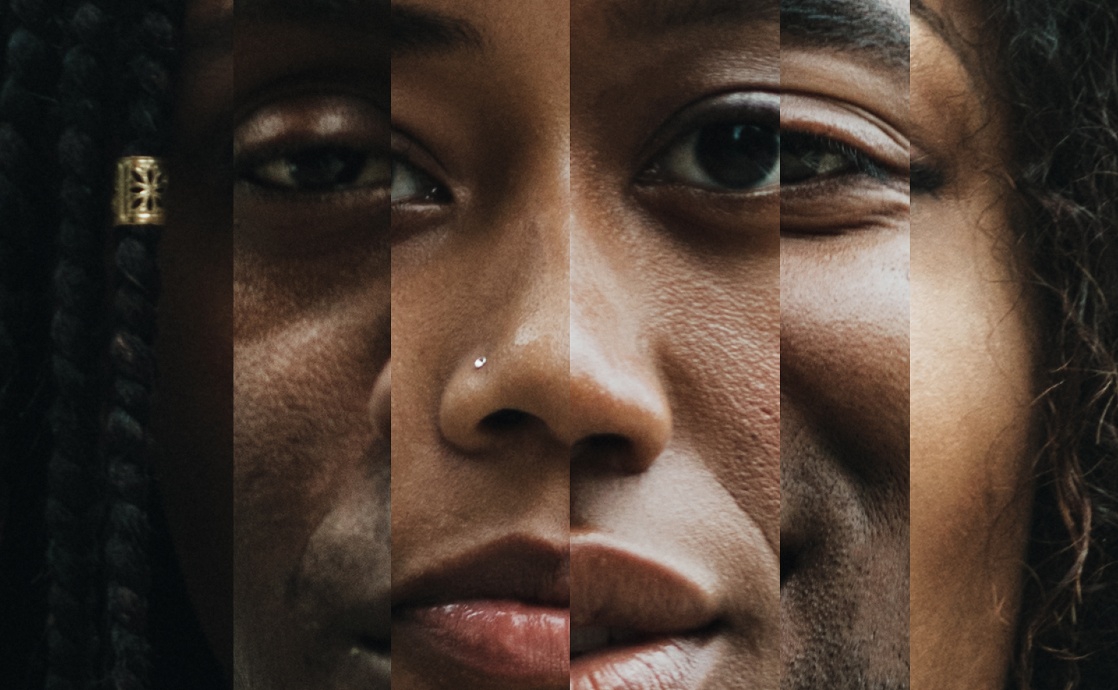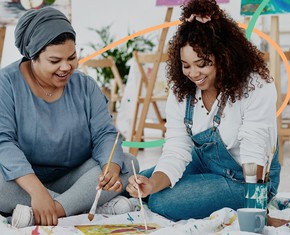The views expressed in our content reflect individual perspectives and do not represent the authoritative views of the Baha'i Faith.
Friends,
We come from far and wide, and now we are here. Our history is rich and full, with stories of discernment and resilience, beauty and brilliance, softness and strength. We, as Black people, have a way of moving throughout this world that is both unique to us, and all encompassing.
The diaspora’s hands have stretched out and now hold the entire Earth — there are traces of us everywhere. Although our stories are often hidden, if you look closely enough, we are everywhere. How special is it to have brothers and sisters with stories from the whole wide world?
RELATED: The Hidden Toll: Mental and Physical Health Effects of Racism
Oftentimes, blackness is solely associated with struggle. I push back against that because it excludes so much of who we are. The narrative surrounding Black people all over the world often leaves out the strength and power of our spiritual qualities.
As a Black person, it’s all too easy to feel forgotten about, especially in religious spaces, but the Baha’i Faith teaches that it shouldn’t be like that. Abdu’l-Baha wrote:
O thou who art pure in heart, sanctified in spirit, peerless in character, beauteous in face! Thy photograph hath been received revealing thy physical frame in the utmost grace and the best appearance. Thou art dark in countenance and bright in character. Thou art like unto the pupil of the eye which is dark in colour, yet it is the fount of light and the revealer of the contingent world.
I have not forgotten nor will I forget thee. I beseech God that He may graciously make thee the sign of His bounty amidst mankind, illumine thy face with the light of such blessings as are vouchsafed by the merciful Lord, single thee out for His love in this age which is distinguished among all the past ages and centuries.
One of the most revolutionary things about the Baha’i Faith is that it explicitly addresses the station and qualities of Black people. The writings not only talk about our struggle, but also our power. They provide a blueprint for progress towards peace, and Black people are central to this plan. Abdu’l- Baha speaks to the beauty, character, and spirit of Black people with an unmatched reverence.
The Baha’i Faith teaches that we are like “the pupil of the eye.” We are gifted with true vision, the ability to see things that other people cannot. Sight doesn’t exist without receptivity, which means that we are capable of developing receptivity to things that other people aren’t. Endeavors, conversations, and organizations that don’t include us are deprived of sight.
Although my Black experience is inevitably different from your Black experience, our vision leads us to one another. When we come together, it is special, because we are special. It’s important to remind each other that we are noble, spiritual beings.
This collective sight brings us together and gives us potency. There is so much power from learning from each other and growing to see through each other’s eyes. Know that you have a lot to teach others if they are willing to listen. Know that there is power in listening.
It can be really difficult to develop a rounded racial identity as a Black person when so much negativity and controversy is associated with blackness. From the color of our skin and the texture of our hair to the way we sing when we worship and express ourselves — anti-Blackness is rooted in so many of our societal structures. Moments of unapologetic blackness are often scrutinized and criticized for being disrespectful, unprofessional, or irreverent.
RELATED: The Pupil of the Eye: A Cosmic Hole to Unleash Black Girl Magic
Through reading the Baha’i writings that address Black people, I find so much solace in a world of grief. I find hope in times when I am least expecting to be hopeful and empowerment when I am being disenfranchised.
Our world is incomplete without the vision of the people who are the pupil of the eye. From academia to housing to art, Black people have valuable contributions to make where we have been previously long overlooked. I dream of living in a society that values what Black people have to bring to the table, and the way in which we bring it to the table.
















Comments
Sign in or create an account
Continue with Googleor